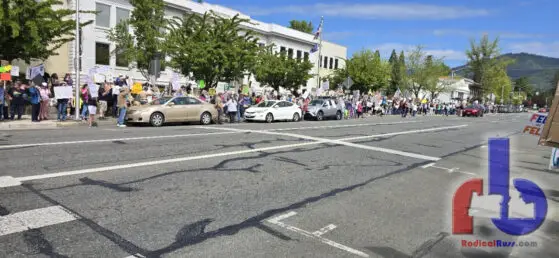Killing the Music
By Don Henley
Tuesday, February 17, 2004; Page A19When I started in the music business, music was important and vital to our culture. Artists connected with their fans. Record labels signed cutting-edge artists, and FM radio offered an incredible variety of music. Music touched fans in a unique and personal way. Our culture was enriched and the music business was healthy and strong.
That’s all changed.
Today the music business is in crisis. Sales have decreased between 20 and 30 percent over the past three years. Record labels are suing children for using unauthorized peer-to-peer (P2P) file-sharing systems. Only a few artists ever hear their music on the radio, yet radio networks are battling Congress over ownership restrictions. Independent music stores are closing at an unprecedented pace. And the artists seem to be at odds with just about everyone — even the fans.
Contrary to conventional wisdom, the root problem is not the artists, the fans or even new Internet technology. The problem is the music industry itself. It’s systemic. The industry, which was once composed of hundreds of big and small record labels, is now controlled by just a handful of unregulated, multinational corporations determined to continue their mad rush toward further consolidation and merger. Sony and BMG announced their agreement to merge in November, and EMI and Time Warner may not be far behind. The industry may soon be dominated by only three multinational corporations.
The executives who run these corporations believe that music is solely a commodity. Unlike their predecessors, they fail to recognize that music is as much a vital art form and social barometer as it is a way to make a profit. At one time artists actually developed meaningful, even if strained, relationships with their record labels. This was possible because labels were relatively small and accessible, and they had an incentive to join with the artists in marketing their music. Today such a relationship is practically impossible for most artists.
Labels no longer take risks by signing unique and important new artists, nor do they become partners with artists in the creation and promotion of the music. After the music is created, the artist’s connection with it is minimized and in some instances is nonexistent. In their world, music is generic. A major record label president confirmed this recently when he referred to artists as “content providers.” Would a major label sign Johnny Cash today? I doubt it.
Radio stations used to be local and diverse. Deejays programmed their own shows and developed close relationships with artists. Today radio stations are centrally programmed by their corporate owners, and airplay is essentially bought rather than earned. The floodgates have opened for corporations to buy an almost unlimited number of radio stations, as well as concert venues and agencies. The delicate balance between artists and radio networks has been dramatically altered; networks can now, and often do, exert unprecedented pressure on artists. Whatever connection the artists had with their music on the airwaves is almost totally gone.
Music stores used to be magical places offering wide variety. Today the three largest music retailers are Best Buy, Wal-Mart and Target. In those stores shelf space is limited, making it harder for new artists to emerge. Even established artists are troubled by stores using music as a loss leader. Smaller, more personalized record stores are closing all over the country — some because of rampant P2P piracy but many others because of competition from department stores that traditionally have no connection whatsoever with artists.
Piracy is perhaps the most emotionally gut-wrenching problem facing artists. Artists like the idea of a new and better business model for the industry, but they cannot accept a business model that uses their music without authority or compensation. Suing kids is not what artists want, but many of them feel betrayed by fans who claim to love artists but still want their music free.
The music industry must also take a large amount of blame for this piracy. Not only did the industry not address the issue sooner, it provided the P2P users with a convenient scapegoat. Many kids rationalize their P2P habit by pointing out that only record labels are hurt — that the labels don’t pay the artists anyway. This is clearly wrong, because artists are at the bottom of the food chain. They are the ones hit hardest when sales take a nosedive and when the labels cut back on promotion, on signing new artists and on keeping artists with potential. Artists are clearly affected, yet because many perceive the music business as being dominated by rich multinational corporations, the pain felt by the artist has no public face.
Artists are finally realizing their predicament is no different from that of any other group with common economic and political interests. They can no longer just hope for change; they must fight for it. Washington is where artists must go to plead their case and find answers.
So whether they are fighting against media and radio consolidation, fighting for fair recording contracts and corporate responsibility, or demanding that labels treat artists as partners and not as employees, the core message is the same: The artist must be allowed to join with the labels and must be treated in a fair and respectful manner. If the labels are not willing to voluntarily implement these changes, then the artists have no choice but to seek legislative and judicial solutions. Simply put, artists must regain control, as much as possible, over their music.
The writer is a singer and drummer with the Eagles and a founding member of the Recording Artists’ Coalition.
I think Henley answers most of the problems in a very compelling manner. However, there’s still a root problem that’s not being addressed. People just want to be able to hear music. Long ago, I could sit at my radio and wait for my favorite song to come on. When it played, I could press “record” on the tape deck and record that song (and the inane blabbering of deejays as well.) Then, after I collected enough of my favorite songs, I could copy them all onto a mix tape, put it in my Walkman, and take my favorite music with me.
That’s what most of us P2P file sharers are doing. We don’t want to make mass copies of the material and sell it for profit. We’re just doing what people have always done. Back then it was analog cassettes and radio quality. Later, it because CD’s or digital music services (like on satellite TV), and burnable CD’s and iPods. But the concept is the same: I can listen to a song, record it, and it’s perfectly legal.
Is it simply that the recording industry wants to force us to wait through hours of other songs and commercials before we record the tunes? Why is it that I have one box (a radio) that plays tunes and it’s legal for me to record, but I have another box (a computer) that plays tunes and it’s illegal for me to record? I think it’s because with the computer, there’s no revenue stream. They don’t mind us recording off the radio, because we DO have to sit through the commercials. The advertisers pay the radio stations, the radio staions pay ASCAP & BMI, those agencies filter the royalties back to the record companies and artists.
I see two solutions that are good for both the downloaders and the artists. One is to have subscription-based or pay-per-download systems, much like the new Napster or iTunes are now. Though I’d like to see a more market-like system of pricing, where the cost of the download is linked to its popularity. A new Britney Spears song should cost 99 cents, but an old Journey song should only be a dime.
Another is to get advertisers in on the deal. Have the MP3’s bundled with a small commercial snippet – say 10 seconds at the beginning of a tune that says “Pepsi, it’s really neato!”, and then the rest of the song plays. Of course, then I suppose we’ll strip out the commercials or program the iPods to skip the first 10 seconds of a song.
The only players I have no sympathy for is the recording industry. Let them go the way of the buggy whip manufacturers. Good riddance. They’ve sucked the soul out of too many musicians already, and now the practice of selling encoded discs is obsolete when those codes can be delivered over the internet.
Another idea: we could impose a file sharing fee at the ISP. Whenever my ISP (Verizon) detects me sending streams of MP3 data, I could be charged a per-megabyte fee on top of my regular monthly payment. That money could be divvied up as royalties to the artists. Hmmm.
Whatever idea we come up with, it’s better than suing thirteen-year-old kids now for making the same kind of mix tapes I made when I was thirteen…
____________________________________________________________________
|
_ | "RADICAL" RUSS BELVILLE | Read More at http://radicalruss.net/blog/
| Portland, Oregon U.S.A. | Permission is granted for reprint of this
| © 2004 by Russ Belville | post, as long as this footer is included.






